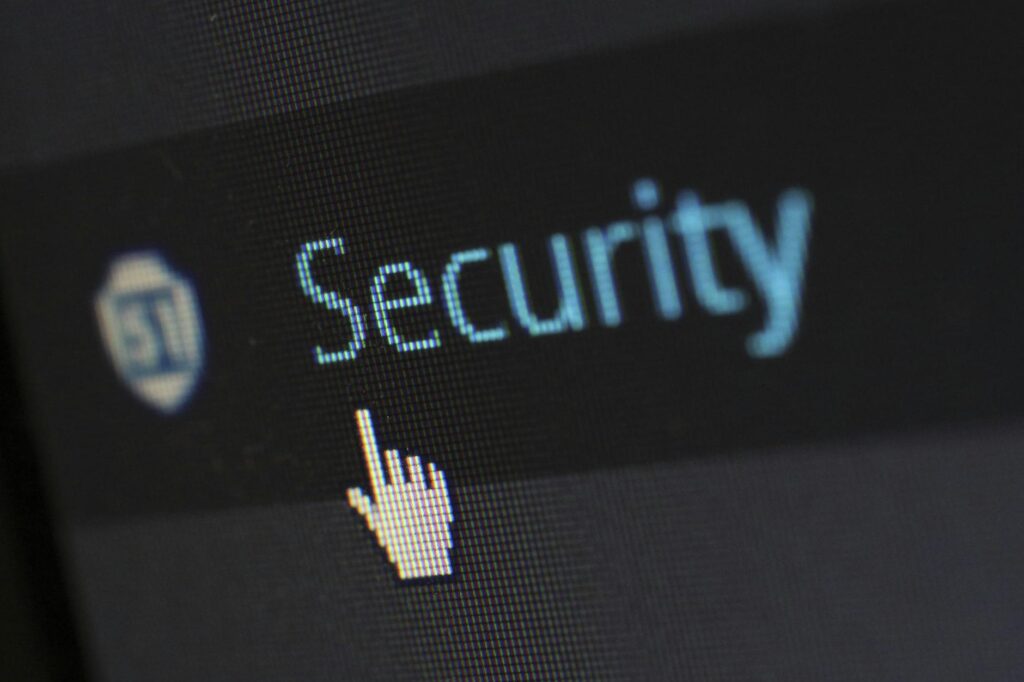In the digital era, where technology and the internet have become integral parts of our lives, cyber security has become more important than ever. Cyber security is the practice of protecting systems, networks, and programs from digital attacks, damage, and unauthorized access. It’s not just about safeguarding our computers but also our digital lives, including our personal data, finances, and even our identities.
Cyber security is no longer a topic that only IT professionals need to worry about. It’s a concern for everyone, including you and me. Why? Because we all use technology in our daily lives. From checking emails on our smartphones to making online purchases, we are constantly interacting with the digital world, making us potential targets for cybercriminals.
I am here to shed light on this critical topic and provide you with some practical cyber security tips. My aim is not to scare you but to equip you with the necessary knowledge and tools to protect yourself and your digital assets effectively.
Understanding the Importance of Cyber Security
Why should you care about cyber security? Well, imagine waking up one day to find out that your personal information, including your credit card details, has been stolen and used to make unauthorized purchases. Or, even worse, your identity has been stolen, and someone else is living as you, running up debts, and committing crimes in your name. This is the harsh reality of the digital age if we don’t take cyber security seriously.
Cyber security is important for several reasons. Firstly, it protects our personal information, which is one of our most valuable assets. Secondly, it safeguards our financial information, preventing financial losses from cyber fraud. Thirdly, it protects us from identity theft, one of the most severe cybercrimes that can have long-lasting effects on our lives.
Furthermore, cyber security is crucial for maintaining our privacy. In an age where our online activities are constantly tracked, and our data is often collected without our explicit consent, cyber security measures can help us regain control over our personal information and keep it private.

Common Cyber Security Threats Men Face
As men, we often face specific cyber security threats. These include online scams that target our financial information, cyberstalking and harassment, identity theft, and even digital blackmail. Cybercriminals often exploit our online habits, such as our tendency to overshare personal information on social media or our negligence in updating our software and systems regularly.
Moreover, we are often targeted by phishing scams, where cybercriminals trick us into revealing our personal information or downloading malicious software. These scams often come in the form of seemingly legitimate emails or messages that prompt us to click on a link or download an attachment.
Another common threat we face is Wi-Fi eavesdropping, where cybercriminals spy on our online activities when we use unsecured Wi-Fi networks. This can lead to the theft of our personal and financial information. Therefore, it’s essential for us to understand these threats and take appropriate measures to protect ourselves.
Top Cyber Security Tips for Essential Men’s Guide
Now that you understand the importance of cyber security and the common threats we face, it’s time to delve into some practical cyber security tips. These tips will not only help you protect your personal and financial information but also enhance your privacy and reduce your vulnerability to cybercrimes.
Firstly, always keep your software and systems updated. Regular updates often include security patches that fix known vulnerabilities, making it harder for cybercriminals to exploit them. Secondly, use strong, unique passwords for your online accounts and change them regularly. This makes it difficult for cybercriminals to gain unauthorized access to your accounts.
Additionally, be wary of phishing scams. Always verify the sender’s identity before clicking on any links or downloading any attachments. If you’re unsure, it’s safer to delete the message. Also, consider using a virtual private network (VPN) for enhanced security, especially when using public Wi-Fi networks.
“Cybersecurity is the invisible shield in our digital world, it’s the unsung hero that guards our virtual existence. Just as a lighthouse guides ships safely to shore amidst a stormy sea, cybersecurity guides us through the tempest of cyber threats, ensuring our data remains unscathed and our digital identities intact.”
How to Protect Your Personal Information Online
Protecting your personal information online is one of the most critical aspects of cyber security. Here are some tips to help you do just that. Firstly, be selective about the personal information you share online. The less information available about you, the less there is for cybercriminals to exploit.
Secondly, use privacy settings on your social media accounts to control who can see your posts. Also, be careful about the photos and information you share, as they might reveal more about you than you intend. For example, a photo of your house could give away your location.
Thirdly, be cautious when using public Wi-Fi networks, as they can be insecure and make your personal information vulnerable to theft. If you have to use a public Wi-Fi network, avoid conducting sensitive activities such as online banking.
Importance of Secure Connections and Wi-Fi Networks
Secure connections and Wi-Fi networks play a crucial role in protecting our online activities and personal information. When we use insecure connections, our data is sent in plain text, making it easy for cybercriminals to intercept and steal it.
To ensure a secure connection, always look for the padlock symbol and ‘https’ in the URL when visiting websites. This indicates that the website uses encryption to protect your data. Additionally, use secure Wi-Fi networks whenever possible, especially when conducting sensitive activities online.
When using public Wi-Fi networks, consider using a VPN to encrypt your data and protect it from prying eyes. Also, avoid connecting to networks that don’t require a password, as they are often unsecured.
The Role of Passwords in Cyber Security
Passwords play a crucial role in cyber security. They act as the first line of defense against unauthorized access to our online accounts. However, many of us often underestimate the importance of strong passwords and end up using weak ones, making it easy for cybercriminals to crack them.
A strong password should be long, unique, and consist of a combination of letters, numbers, and special characters. Avoid using obvious choices like your name, date of birth, or ‘password123’. Also, avoid using the same password for multiple accounts, as it increases the risk of multiple accounts being compromised if one gets hacked.
Moreover, consider using a password manager to store your passwords securely. This not only saves you from the hassle of remembering multiple passwords but also allows you to generate strong, unique passwords for your accounts.
Regular Software and System Updates: A Must for Cyber Security
Regular software and system updates are a must for cyber security. They often include security patches that fix known vulnerabilities, making it harder for cybercriminals to exploit them.
Many of us often neglect to update our software and systems regularly, either because we find it inconvenient or we’re simply unaware of the importance. However, not updating your software and systems regularly can leave them vulnerable to attacks.
Therefore, always keep your software and systems updated, whether it’s your operating system, web browser, antivirus software, or the apps on your smartphone. Also, enable automatic updates whenever possible to ensure you’re always running the latest, most secure versions.

Beware of Phishing Scams: An Essential Cyber Security Tip
Phishing scams are a common cyber security threat that we all need to be aware of. In a phishing scam, cybercriminals trick you into revealing your personal information or downloading malicious software. They often do this by posing as a legitimate company or individual.
Phishing scams often come in the form of seemingly legitimate emails or messages that prompt you to click on a link or download an attachment. These links or attachments often lead to fake websites that mimic real ones or contain malicious software.
To protect yourself from phishing scams, always verify the sender’s identity before clicking on any links or downloading any attachments. If you’re unsure, it’s safer to delete the message. Also, avoid providing personal information via email or over the phone unless you initiated the contact and are sure of the recipient’s identity.
Using VPNs for Enhanced Cyber Security
Virtual private networks (VPNs) can significantly enhance your cyber security. A VPN encrypts your data, making it unreadable to anyone who might intercept it. This is especially useful when using public Wi-Fi networks, which are often unsecured and make your data vulnerable to theft.
Using a VPN also helps protect your privacy by concealing your IP address. This prevents websites and online services from tracking your online activities and collecting data about you without your consent.
There are many VPN services available, both free and paid. When choosing a VPN service, consider factors like its security features, privacy policy, speed, and the locations of its servers.
Cybersecurity Tools to Consider
In addition to the cyber security tips I’ve shared, there are also several cybersecurity tools that you should consider using. These tools can greatly enhance your cyber security and make it easier for you to protect your personal and financial information.
Firstly, consider using antivirus software to protect your devices from malware. Antivirus software can detect and remove malware, preventing it from damaging your devices or stealing your data. Secondly, consider using a firewall to block unauthorized access to your devices. A firewall can also prevent malware from sending your data to cybercriminals.
Other cybersecurity tools to consider include password managers, which can help you manage your passwords securely, and VPNs, which can protect your data and enhance your privacy online.
Conclusion
Cyber security is a critical issue that we all need to pay attention to. As men, we often face specific cyber security threats, and it’s crucial for us to understand these threats and take appropriate measures to protect ourselves.
In this guide, I’ve shared some practical cyber security tips and tools that can help you protect your personal and financial information, enhance your privacy, and reduce your vulnerability to cybercrimes. Remember, cyber security is not just about protecting your devices but also your digital lives. So, take these tips to heart and start taking steps to enhance your cyber security today.
From Traditional to Modern: The Unavoidable Shift to Digital Business Transformation
Navigating the Crypto World: A Comprehensive Comparison of Proof of Stake vs Proof of Work





